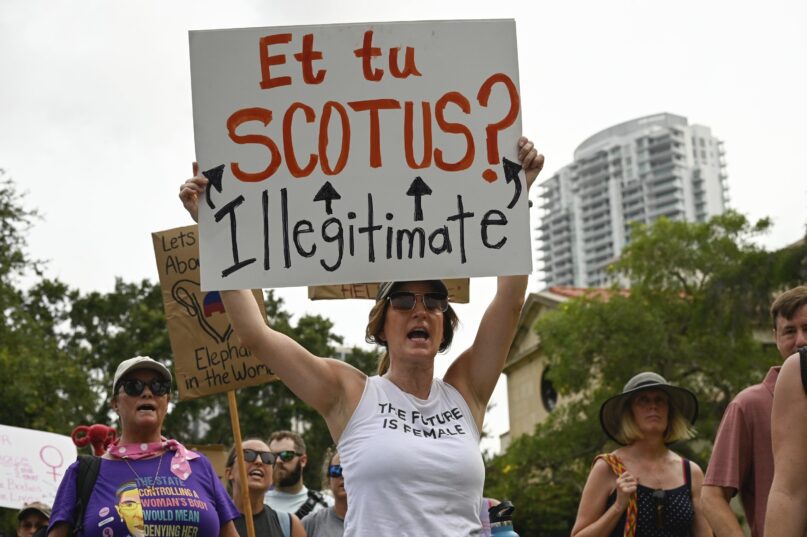(RNS) — In 2016, Indiana passed legislation that assumes a fetus is a person.
State law now requires medical facilities to bury or cremate any fetal tissue in their possession, as opposed to disposing of it by standard medical means. The woman who underwent the miscarriage or abortion is permitted to dispose of the tissue as she wishes — but only if she takes it home. She cannot require the facility to treat it other than as prescribed.
In late September a federal judge found that the law violates the religious liberty of two women who challenged it under the First Amendment’s free exercise clause.
One of the women claimed that, according to her Baptist faith, she understands the Bible to say that “life begins at the first breath, following birth” rather than in the womb. (The Scripture in question is from the second chapter of the Bible’s Book of Genesis, which in the King James Version goes: “And the LORD God formed man of the dust of the ground, and breathed into his nostrils the breath of life; and man became a living soul.”) As a result, the woman opposes obligatory burial and cremation of fetal tissue as “religious rituals (are) reserved for people and animals with souls.”
RELATED: Faith groups weigh the impact of abortion on the midterms
As for the other woman, she believes that fetal tissue is not the remains of a person on moral rather than religious grounds. Both plaintiffs asserted that to do as Indiana requires would be to signify, against their beliefs, that fetal tissue is a person.
Pointing out that the free exercise clause protects “sincerely held” religious and moral beliefs “even if those beliefs are not mandated by a particular organization or shared among a congregation,” U.S. District Judge Richard L. Young found that both women “hold sincere religious and moral beliefs that the fetal tissue is not equivalent to a person and should be disposed of as medical waste.”
Young went on to hold that “the fetal disposition law burdens this religious and moral belief by making it more difficult, if not impossible, to dispose of fetal tissue as medical waste.” Quoting from Justice Samuel Alito’s majority opinion in last June’s Dobbs case overturning Roe v. Wade, Young wrote that because abortion “‘presents a profound moral question,’ it is no surprise that some will have firmly held religious and moral beliefs as to the status of fetal tissue.”
And, according to the judge, the fetal take-home provision does not prevent the law from burdening the plaintiffs’ free exercise rights, both because it requires them to deal with fetal tissue differently from other medical waste and because it “treats those exercising the religious and moral beliefs at issue differently than those without such beliefs.”
I will spare you the judge’s explanation for why the Indiana law is neither neutral nor generally applicable and how it fails to pass the “strict scrutiny” standard for a law of that kind. Suffice it to say that he employs the full battery of free exercise criteria that the U.S. Supreme Court has used in recent years to permit religious liberty to trump one law after another.
In response, Indiana Attorney General Todd Rokita indicated that he planned to appeal, so look for Doe v. Indiana to be decided by the 7th Circuit Court of Appeals sometime next year. In due course, it is likely to join a slew of other religious liberty suits pushing back against anti-abortion laws, including the one I wrote about last week that directly challenges Indiana’s highly restrictive post-Dobbs abortion law.
Before long, the Supreme Court’s conservative super-majority will have to choose between its uber-expansive interpretation of the free exercise clause or a jurisprudence of: Religious liberty is for me but not for thee. I’m betting on the latter.






